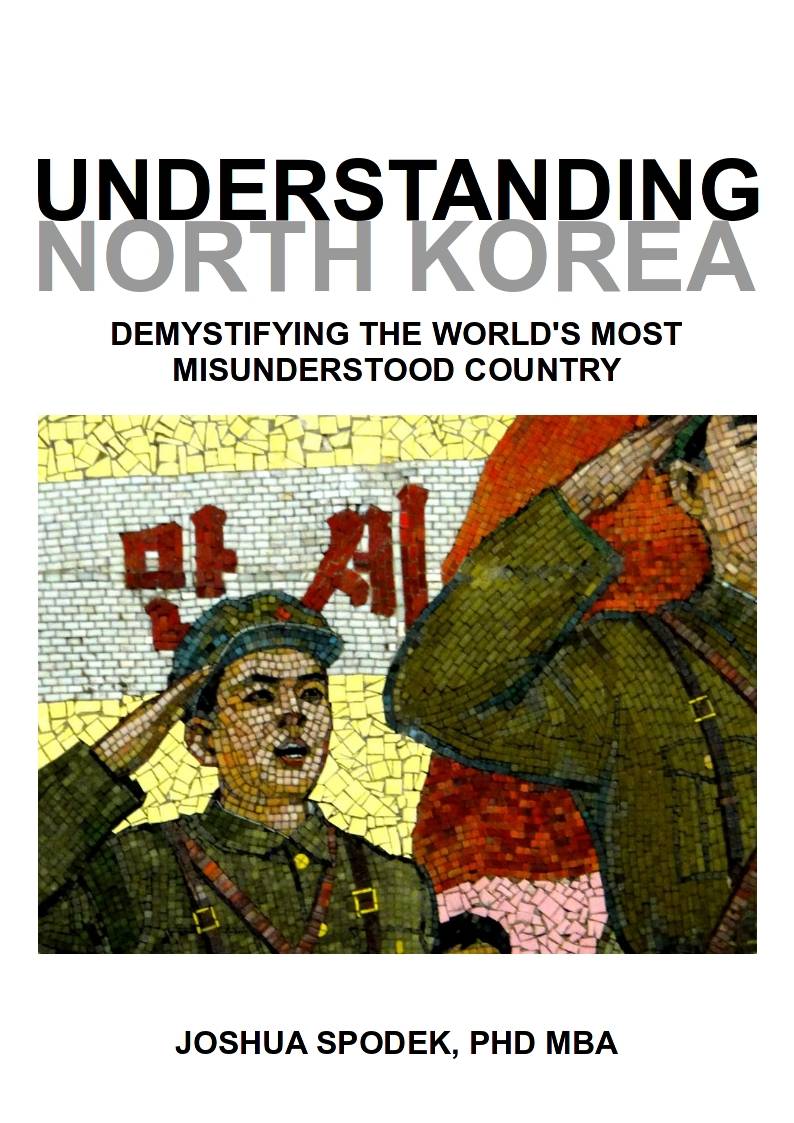Last post I pointed out the stakes to individual North Korean decision-makers.
That perspective implies North Korean decision-makers are part of a larger system they have little control over and have little choice not to follow their roles within it without grave risk to themselves and everything they care about.
With so little choice, what do they want? What do they pursue?
Of course they want material prosperity and security, like anybody else. Kim Jung Il famously buys hundreds of thousands of dollars worth of cognac annually. As individuals, they probably want to rise through the ranks, but probably in a limited way. Those desires we all anticipate.
North Korea reminded me a lot of Nineteen Eighty-four, but I think the underlying systems differed. In Nineteen-Eighty-four power was the only goal of the system. As Ingsoc Inner Party member O’Brien states,
The Party seeks power entirely for its own sake. We are not interested in the good of others; we are interested solely in power. Not wealth or luxury or long life or happiness: only power, pure power. What pure power means you will understand presently. We are different from all the oligarchies of the past, in that we know what we are doing. All the others, even those who resembled ourselves, were cowards and hypocrites.
…
We know that no one ever seizes power with the intention of relinquishing it. Power is not a means; it is an end. One does not establish a dictatorship in order to safeguard a revolution; one makes the revolution in order to establish the dictatorship. The object of persecution is persecution. The object of torture is torture. The object of power is power.
I think neither decision-makers nor the system in North Korea wants more power like that.
They have limited material resources to distribute. Power — the ability to influence others — may get you a larger slice of the pie, but North Korea can’t increase the size of its pie without opening up, which it can’t, for reasons I’ve described, and individuals squabbling over crumbs undermines the system that protects them.
As far as can tell, North Korean decision-makers want two things more than anything else:
- Stability
- Loyalty
When I say they want these things I mean they benefit from them, suffer from their loss, act to maintain them, and will suffer losing nearly everything else to maintain them.
By stability I mean they want to maintain foreign relations and the domestic hierarchy as they are. By loyalty I mean they want citizens to value the system above all else, or at least to behave consistently with it. Mostly these wants restate the strategy of maintaining geographical dominance and customer captivity — that is, stability and loyalty.
No other players in North Korean strategy have this combination of decision-making capability, single-minded focus, and ability to maintain it. Recall, the key players are the the people of North Korea and the governments of North Korea, South Korea, China, Russia, Japan, and the United States.
The leaders of South Korea, China, Russia, Japan, and the United States have innumerable other interests based on innumerable relationships with foreign nations and internal groups that dominate their time and attention. As long as North Korea doesn’t destabilize the situation, the country remains a thorn in their sides not as important as other interests. Their best option is not to rock the boat.
The North Korean people have no ability to change the system, nor do they know it could be improved.
North Korean leaders have a single-minded focus, little internal dissent, and ability to act on maintaining things. No one else does, so no matter how small their country and how limited their resources, they call the shots in their strategic relations and those shots are dictated by their situation.
Next: How does the world look to North Korean leaders?
—
EDIT: I included much of this post and this series on strategy (edited and polished) in my ebook, Understanding North Korea: Demystifying the World’s Most Misunderstood Country. I wrote the book to help increase understanding, communication, and freedom.


Pingback: North Korea strategy: reducing domestic support | Joshua Spodek
Pingback: North Korea strategy: preview | Joshua Spodek
Pingback: North Korea strategy: a half-baked but potentially helpful idea | Joshua Spodek
Pingback: NorthKorea | Joshua Spodek
Pingback: North Korean strategy: increasing interaction | Joshua Spodek
Pingback: Celebrations on a North Korea scale | Joshua Spodek
Pingback: North Korean Strategy: from the leaders’ perspective | Joshua Spodek